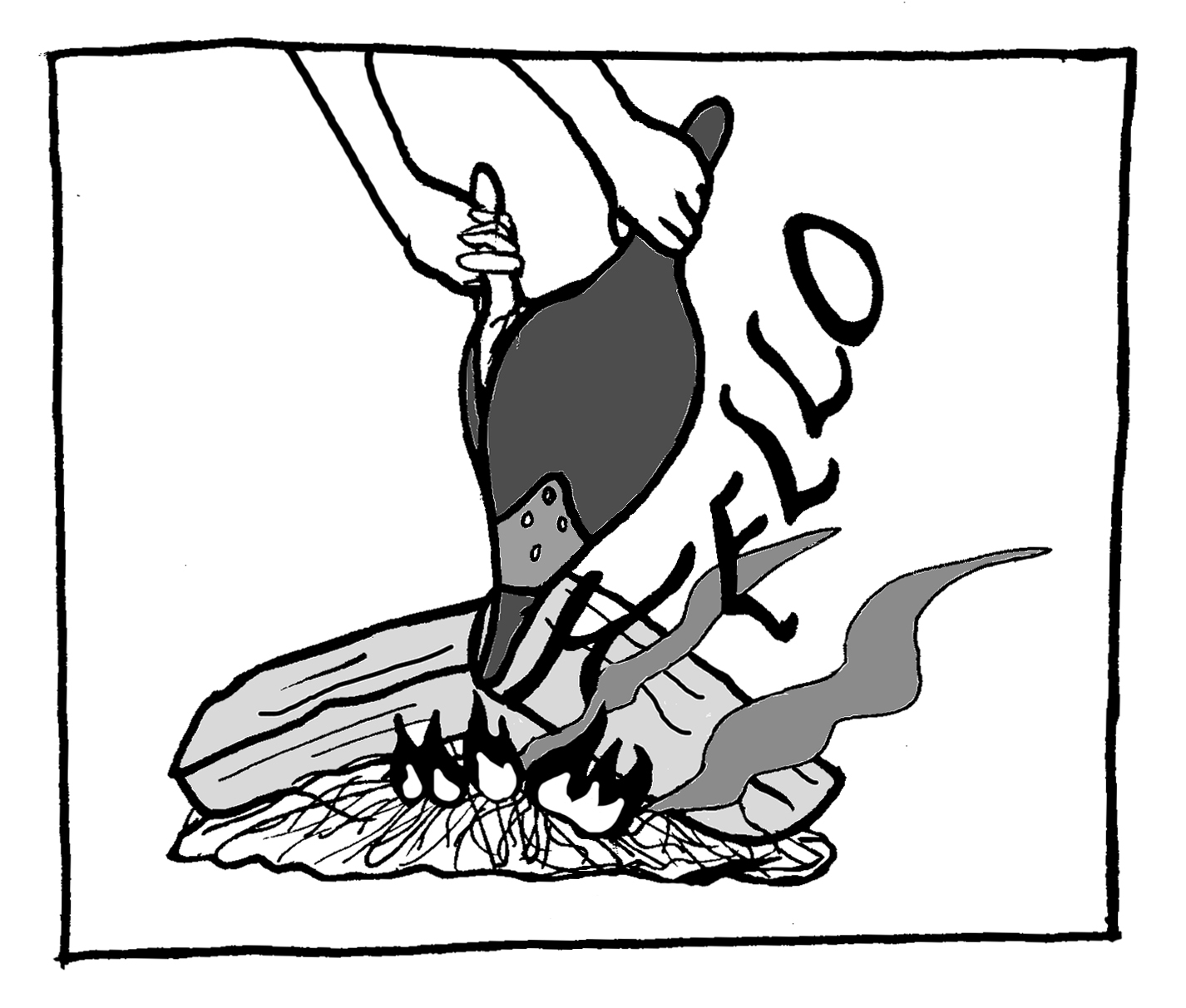Engaging with community through the Bowdoin Hello
October 13, 2017
 This
piece represents the opinion of the author
.
This
piece represents the opinion of the author
.
As an upperclassman, I’ve begun to realize how fleeting four years at Bowdoin are. Yet, thinking this only reminds me of how short life is, which leads me to stress about the vastness of the universe. This then forces me to confront not only my own insignificance, but also the fundamental truth that whether or not I do my biology reading, it doesn’t really matter.
In all seriousness though, I’ve spent each stage of my life waiting for the next, whether it’s college, graduation or the always looming Real World. It seems like people slightly older always have it all figured out, yet when I finally catch up, I’m still the same disoriented me. I don’t want to keep waiting until I’m “grown up” to start living, so I intend to use this column to grapple with questions hopefully common to us all on finding purpose and grounding in life, especially while we’re still based here at Bowdoin.
I decided I’d start at hello, quite literally. The Bowdoin Hello is a supposed tradition in which all students greet one another while passing by on campus. While some contest it as folklore (as a side note, when I asked a very friendly friend why he said hello to everyone, he answered simply that he “didn’t want to always wear his glasses”), its nature is representative of the college we attend—where the brochure buzzwords of “community” and “collectiveness” often ring true. Even so, I frequently let myself slip into preset habits: whether by eating only in the light room or studying with the same peers, I manage to make my personal bubble even smaller than the Bowdoin one.
I chose to mix this up by taking part in the Bowdoin Hello for a minimum of two weeks. While I didn’t specify strict parameters for myself on actual exchanges, I had to address every single campus member I passed with a verbal greeting (a small head nod didn’t suffice). By doing this I wanted to see what the effects would be of taking a slightly more conscious and active role around campus, especially if it could be achieved with what seemed to be a simple, hasty “Hi.”
There are many reasons I wanted to do this experiment. I can—and have—joked about our Nalgene-toting or our football scores, but I’ve never met a group of people that exudes more passion (and for a wider variety of subjects) than Bowdoin students. Maybe it’s only the camaraderie formed during our yearlong hibernation in rural Maine, but this passion usually extends to all things and all people at Bowdoin, too.
Even so, after two years here there are already individuals I’ve sadly slipped out of contact with: past lab members or freshman brick-mates who, I’m ashamed to admit, I usually choose to avoid by looking down at the ground rather than risk an awkward interaction. This experiment gave me an excuse to break out of my comfort zone and engage in new conversations with old friends. And as I should have predicted, I got nothing but friendliness in return.
Saying hello to past acquaintances was slightly uncomfortable, but the worst by far was saying hello to strangers, even Bowdoin ones. I had considered myself fairly confident, but I felt like the new kid in any one of those ’80s high school movies. Surely I came across as foolish and overzealous, and that group of first years leaving Appleton must have been talking about the desperate junior they passed on their walk to Thorne.
As the weeks went on though, I realized that saying hello in passing affected me more than it appeared to affect anyone else. Sure, I might get a surprised smile or confused look but most strangers greeted me in response rather automatically. I realized I had fallen into the “spotlight effect,” the phenomenon in which you think everyone is as keenly aware of your activities as you are.
And it didn’t bother me that my actions didn’t really impact others. Being aware of those I was passing succeeded in making me feel more present on campus. Each walk across the quad seemed longer without my head in my phone or my mind on my next class.
The biggest change I noticed, however, was my concept of the Bowdoin community. While Bowdoin is certainly a small school (what I thought surely had to be an exaggeration in an online College Confidential review I read before coming: “You will run into your hookups on campus”—really just omitted the phrase “five times a day”), I was most surprised by the number of students I pass by every day and don’t know. I was reminded of President Rose’s words at my freshman orientation that, “This is likely the first time, and sadly in the way our society is constructed perhaps the last, that you really have to get to know so many people, from so many backgrounds, and so many views.”
The one thing we do all have in common is a shared presence at Bowdoin. While it’s easy to slip into our various assemblages and daily patterns, we may be squandering an opportunity. This same inattention can even become dangerous: on a larger scale, it certainly contributed to our country’s current political rift. When we pretend other views don’t exist and shrink into our comfort zones, we hurt ourselves in the end.
Saying hello doesn’t combat all of this, but it’s a start: a way of opening the dialogue.


Comments
Before submitting a comment, please review our comment policy. Some key points from the policy: